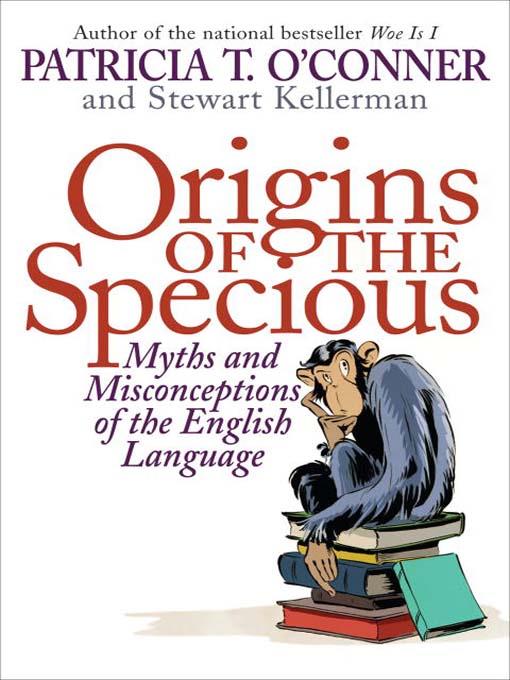
Origins of the Specious
Myths and Misconceptions of the English Language
فرمت کتاب
ebook
تاریخ انتشار
2009
شابک
9781588368560
کتاب های مرتبط
- اطلاعات
- نقد و بررسی
- دیدگاه کاربران
نقد و بررسی

March 2, 2009
Bestselling word maven O'Conner (Woe Is I
) is that rare grammarian who values clear, natural expression over the mindless application of rules. In her latest compendium, she debunks the hoariest of false strictures, many of them concocted by evil latter-day pedants seeking to bind the supple English tongue with the fetters of Latinate grammar. A preposition, she proclaims, is a fine thing to end a sentence with. To deftly split an infinitive is no crime to her. And starting a sentence with a conjunction gets her approval, as well as Shakespeare's. Other misconceptions she targets include the idea that “woman” has a sexist etymology and that the British speak a purer form of English than do Americans,. Ranging through the history of English from Beowulf
to the latest neologisms, the author accepts change in a democratic spirit; proper English, she contends, is what the majority of us say it is (though she can't resist making a traditionalist plea to preserve favored words like “unique” and “ironic” from corruption). Writers will appreciate O'Conner's liberating, common-sense approach to the language, and readers the entertaining sprightliness of her prose.

April 1, 2009
Inspired by answering language questions on talk radio and through email, journalists and grammar book authors O'Conner and Kellerman keep explaining the English language in ten topical chapters. While some grammar and etymology questions are familiar, other topics are happily fresh. An example of this is the first chapter, which considers authenticity, namely, whether American or British English retained more original vocabulary and pronunciation. Skillfully drawing on the "Oxford English Dictionary" and other research tools, the writers always present conversational prose with different kinds of wordplays. For instance, regarding using pronouns, they write, "But one word is missing]the word that I would have used instead of 'he or she' in the last sentence." Because the work aims to explain even more than guide, it emphasizes historical background more than other recently published books such as June Casagrande's "Mortal Syntax" and Paul Yeager's "Literally, the Best Language Book Ever". With an accessible tone and full of information, this work is recommended for public libraries.Marianne Orme, Des Plaines P.L., IL
Copyright 2009 Library Journal, LLC Used with permission.

























دیدگاه کاربران